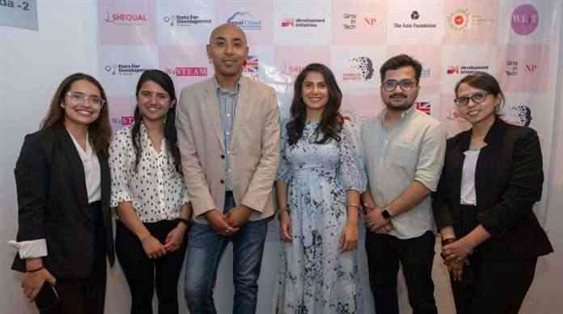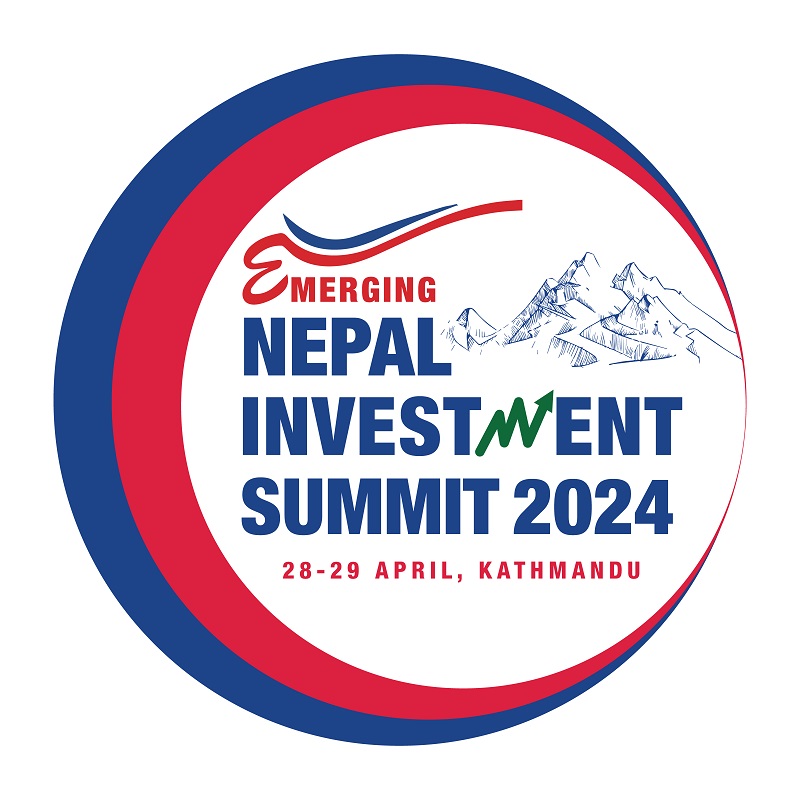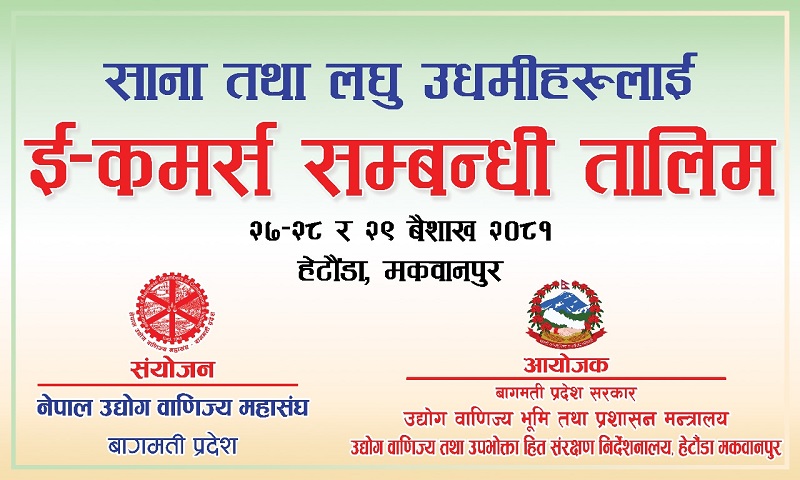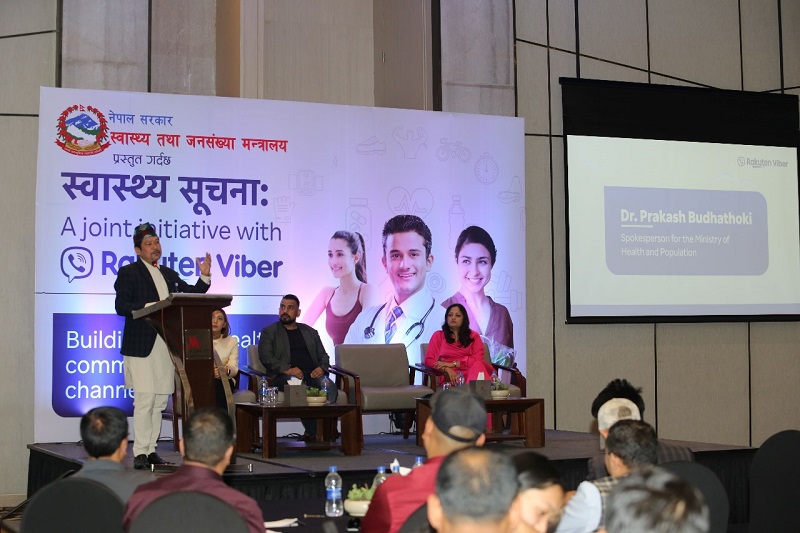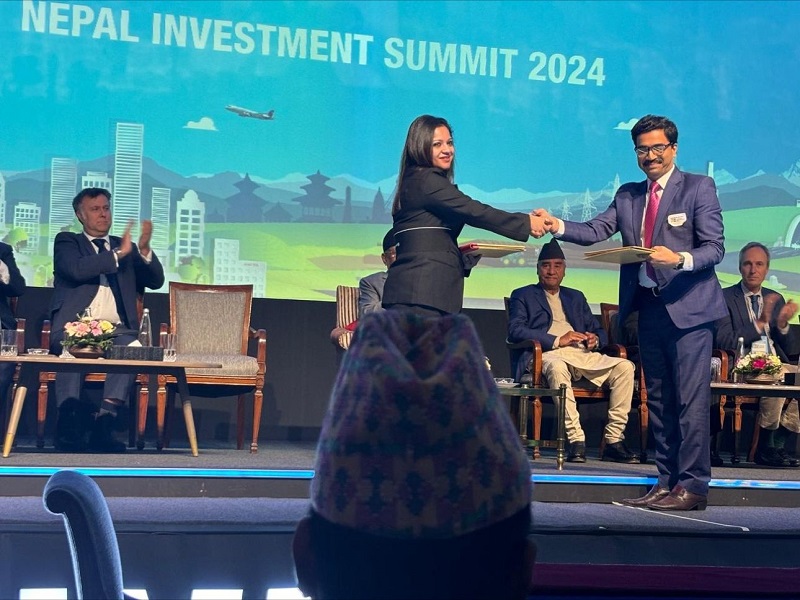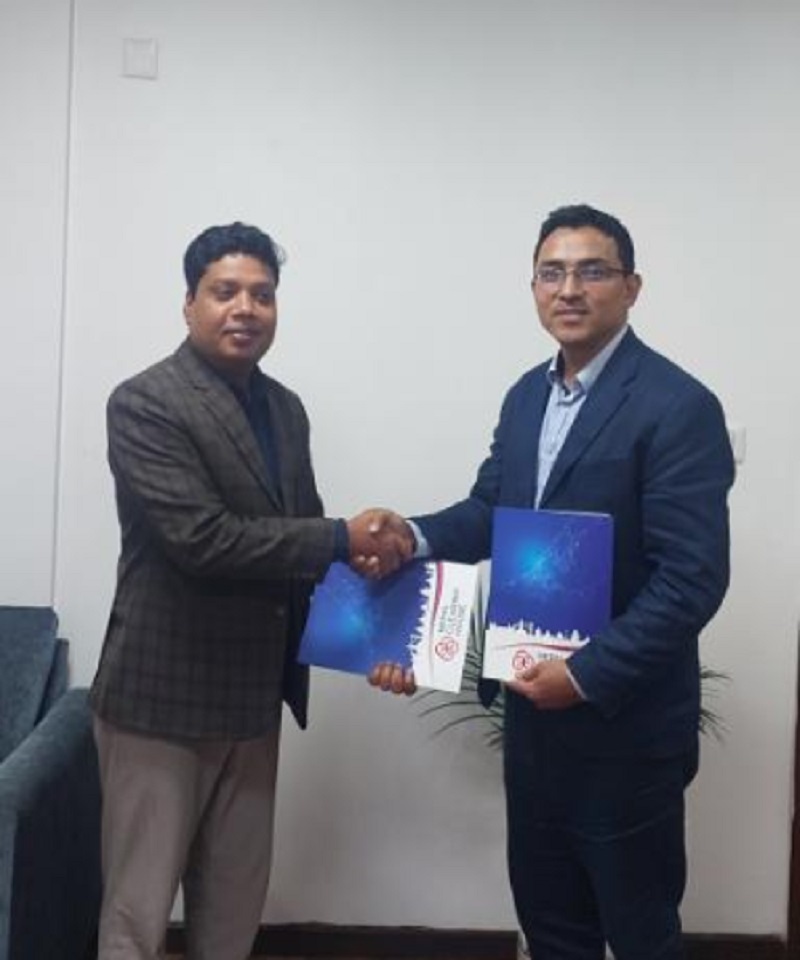26th March 2022, Kathmandu
Girls in Tech Nepal on 20th March 2022 conducted a panel discussion which was supported by Development Initiatives, The Asia Foundation, UKAid Nepal, and Data for Development Nepal, in presence of renowned data scientists and top-level executives as the panelists with about 65+ audiences representing various organizations.
The conduction of this event is a significant move for Girls in Tech Nepal on its mission to eliminate the existing gender biases in the tech industry.
Aanchal Kunwar, Managing Director of Daraz Nepal, Sachin Karanjit, Director of Nepal Operations – Deerhold, Shreyasha Paudel, Research Fellow at NAAMI and Rakesh Katuwal – Manager of AI services and Product Department at Fusemachines were the panelists.
The discussion was mainly held upon how the biases in data can lead to algorithmic biases and how the use of algorithmically biased technology has a major influence on decision-making at the policy level which in turn impacts every aspect of our lives.
“At Daraz Nepal, we do mystery buys – random buys by Daraz employees as a customer to ensure that we do not only use majority-driven data to make decisions.”
Panelist Aanchal Kunwar, Managing Director at Daraz Nepal
“The biases will always exist. It is up to us as engineers, executives, leaders, and policymakers that we inculcate our values to mitigate those biases.”
Panelist Shreyasha Paudel, Research Fellow at NAAMI
“Weighing data privacy against data accessibility and creating roadmaps for utilizing the data. Stringent policies to protect our information, are they in place?”
Panelist Rakesh Katuwal, Manager of AI Products and Services at Fusemachines
“It is the responsibility of executives and businesses leaders to set examples regarding gender biases.”
Panelist Sachin Karanjit, Head of Nepal Operations at Deerhold
The discussion wrapped up highlighting the importance of making social change a priority not an afterthought. The solution measures that came out after the panel discussion include:
- Building platform identifying biases
- Auditing existing software which are algorithmically biased
- Creating inclusive and diverse training sets
- Thinking of the social impact of technology that we’re developing
It is important for us to strive for creating a world where technology works for all of us, not some of us, the world where we value inclusion and prioritize social change.

